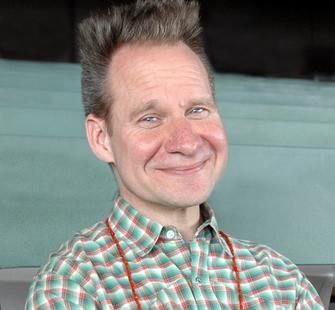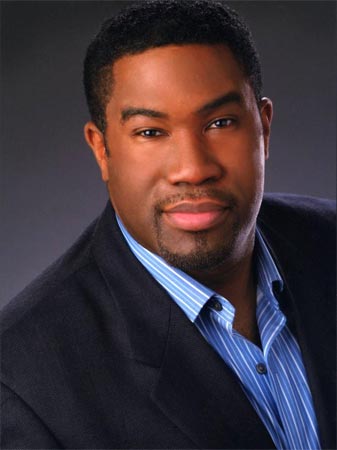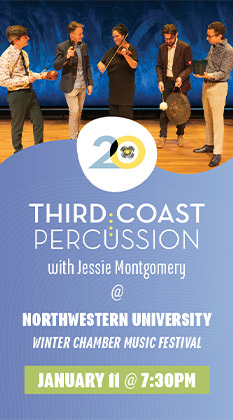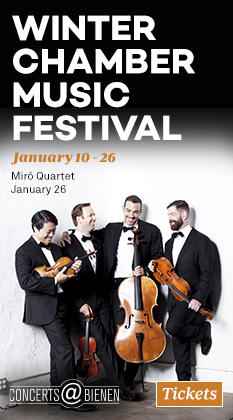Lyric Opera’s “Hercules” to bring the war home in modern fashion
See, the conquering hero comes from Judas Maccabeus is one of Handel’s most rousing numbers. The triumphant leader is back from battle, and the Israelites are ecstatic, looking forward, finally, to peace.
But Handel knows that not all conquering heroes return to find peace and tranquility. With Lyric Opera’s new production of Handel’s Hercules, director Peter Sellars and a top-flight cast are exploring a very different kind of homecoming.
Inspired by a play by Sophocles, Handel wrote Hercules as a “music drama” in 1744. Sellars has set the action in present-day America. Hercules (Eric Owens) is a general back from extended duty in Afghanistan. His anxious wife Dejanira (Alice Coote) and son, Hyllus (Richard Croft), had nearly given up hope of ever seeing him again. But Hercules hasn’t returned alone. He has brought along a beautiful young princess, Iole (Lucy Crowe), daughter of an enemy chief he killed in battle.
Hercules is emotionally remote and preoccupied, and Dejanira reads his coolness as disinterest. She fears that he has fallen out of love with her and taken up with Iole. From that incendiary combination of Dejanira’s jealousy and Hercules’ indifference the opera plunges toward its bloody outcome.

This is Sellars’ first production of Hercules, though he had wanted to do the piece for years. His previous forays into Handel included a highly praised production of Theodora at the 1996 Glyndebourne Festival set in some future universe.
The images for Lyric’s new production, which is also a premiere for the company, come straight from today’s newspapers. Hercules wears desert camouflage, combat boots and bulky Kevlar vest. Iole appears in a prisoner’s orange jumpsuit, her beautiful face and gleaming blonde hair hidden by a black mesh hood. Hercules’ homecoming party is a backyard barbeque complete with fancy gas grill and plenty of beer. Noted Baroque specialist Harry Bicket conducts. The production team includes set designer George Tsypin, Dunya Ramicova’s costumes and lighting by James F. Ingalls, lighting.
Sellars is interested in the toll war takes on the human psyche. A general returning from war, no matter how victorious, is not the same man who left years before. His family is not the same family, the world he is returning to and his place in it has changed in myriad ways. The challenge is to find a way to rebuild the relationships upended by war.
“War follows you home,” Sellars said simply. “Now that we’re nine years in with two wars underway, this is the reality for our country.”
During a recent run-through of Act I at the Civic Opera House, Sellars sat quietly halfway back in the empty auditorium. Wardrobe people scurried down an aisle periodically, crouching close to the stage to study the color of a pullover, the drape of a skirt.
But the intensity of Sellars’ vision was apparent onstage. Confounded by Iole’s presence, Dejanira slowly paced, her astonishment and budding rage obvious in her long, questioning stares and wary shoulders. Owens embraced her reluctantly, patting her like a distracted parent rather than a joyful husband. This was a couple so wracked by their own pain that they couldn’t even imagine the other’s agony.
“People are in all kinds of levels of denial,” said Sellars about the psychic scars inflicted by war. “Support for the troops with bumper stickers does not translate into benefits, into giving people therapy and the attention they need.”
Sellars has been meeting with veterans, and a group of veterans are scheduled to attend a rehearsal of Hercules’ and participate in a discussion organized by Lyric on Wednesday. The director is carrying around a publication issued by the National Academy of Sciences’ Institute of Medicine. Its title is “Returning Home from Iraq and Afghanistan: Preliminary Assessment of Readjustment Needs of Veterans, Service Members, and their Families.”
From the report’s section about deployment and military spouses, Sellars read drily, “Available data suggests that despair is followed by anger and reorganization of attachment perceptions.” Sophocles recognized the syndrome 2,500 years ago, he said, and Hercules’ continues to give it a voice.
“Handel is very much in the grim reality of politics,” said Sellars, “and interpersonal crisis.”
Coote, a British mezzo-soprano acclaimed for her work in Handel operas, agrees.
“That’s Handel,’’ she said. “He just writes real life, the truth between people. And then he allows it to live for so long. You get to magnify the pain that is fleeting, those huge disappointments that can last a split-second. Handel suspends time, and you explore those emotions in a 10-minute aria.”
She has not worked with Sellars before and finds the experience daunting.
“It’s incredibly intense and demanding,’’ Coote said, “not necessarily because of his directing itself, what he asks me to do. It’s more the emotional commitment that he has about the piece itself. It’s so deep. It makes it very difficult to leave it at home, to not get upset at rehearsals. It’s an extraordinary experience.”

Hercules marks Owens’ second appearance at Lyric in the uniform of a U. S. Army general. He made his Lyric debut in 2007 as Gen. Leslie Groves in John Adams’ Doctor Atomic, which Sellars also directed.
“Peter is extremely passionate about everything he does,” said Owens. “He’s always looking to get the best performance out of the person in front of him. He tries to work to your strengths. With me, he knows in a good way which buttons to push.
“The other day he was telling me about the character of Hercules, how he gets angry and he punishes himself. [Hercules] asks himself, ‘Why did you do that?’ That’s something I relate to.”
Owens sang the role in a traditional production in England in 2004, and he finds it to be tricky in unusual ways.
“There’s the challenge of being the title character and having the smallest vocal role,” he said. “When you’re out there you have to bring an intensity to the character, to keep that strength. A lot of it is being a good listener.”
Hercules is a long night at the opera, with multiple arias for many characters and a chorus that often provides commentary on the action. Lyric asked Sellars and Bicket to make significant cuts, and they have excised more than 80 pages of the 269-page score.
“I wanted to focus on the story of this marriage,” said Sellars, “and the counter-story of the Iole-Hyllus relationship.”
“This idea of war and the troops coming home has been around since the beginning of time,” said Owens. “It’s a story that’s quite timeless.”
Handel’s Hercules opens 7:30 p.m. Friday at the Lyric Opera of Chicago and runs through March 21. 312-332-2244. lyricopera.org.
Posted in Uncategorized




Posted Mar 04, 2011 at 11:46 am by RANDALL JONAS
I’m not a usual Opera goer but tonight I have great expectations. Mr Sellars comment “that bumper stickers supporting our troops isn’t enough” says it all. Thank you Mr Sellars